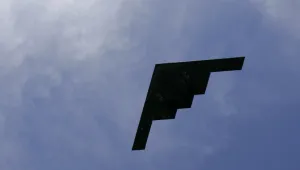International Security is America's leading peer-reviewed journal of security affairs.
Overview
Randall Schweller of Ohio State University examines the phenomenon of “underbalancing” in international politics. According to Schweller, underbalancing occurs when states fail to recognize dangerous threats, choose not to react to them, or respond in “paltry and imprudent ways.” Most likely to underbalance are incoherent, fragmented states whose elites are constrained by domestic political considerations. Schweller assesses the implications of underbalancing behavior for structural realist theory—in particular, its core prediction that states are coherent actors that, when confronted by dangerous threats, will balance by creating alliances or increasing their military capabilities and, in some cases, a combination of both.
Schweller, Randall. “Unanswered Threats: A Neoclassical Realist Theory of Underbalancing.” Fall 2004
The full text of this publication is available in the link below.





